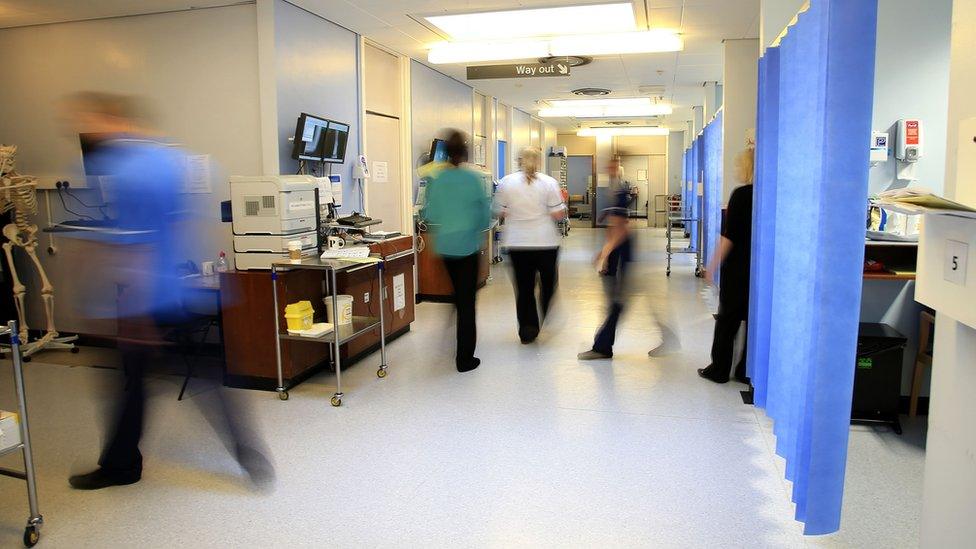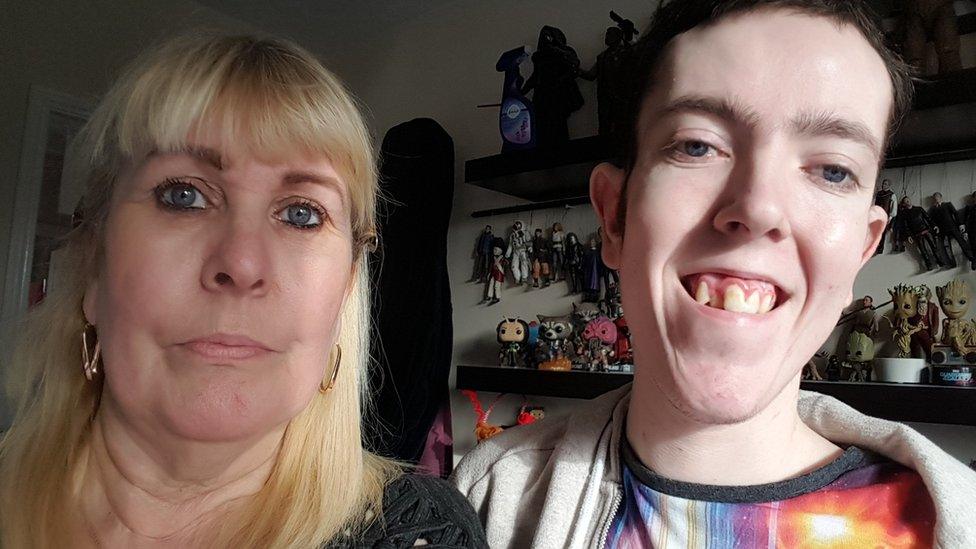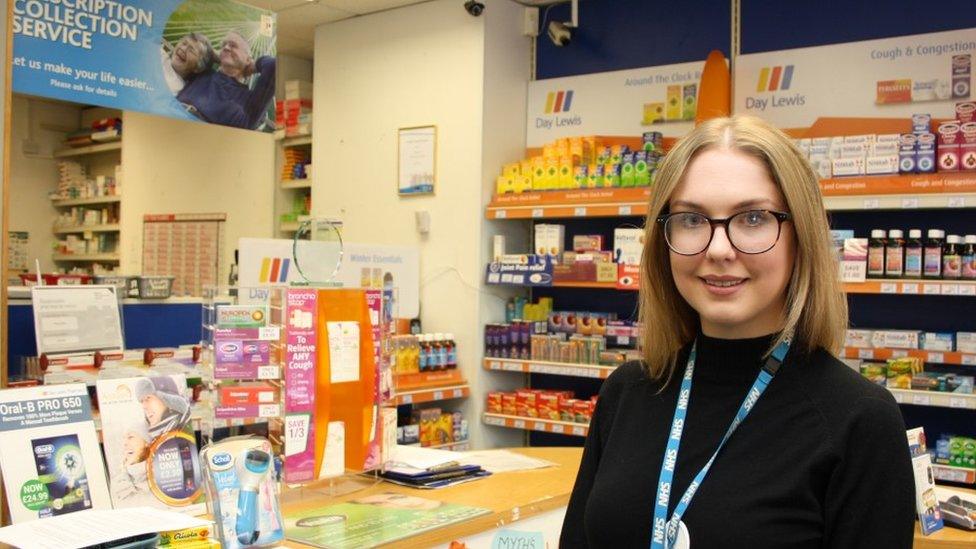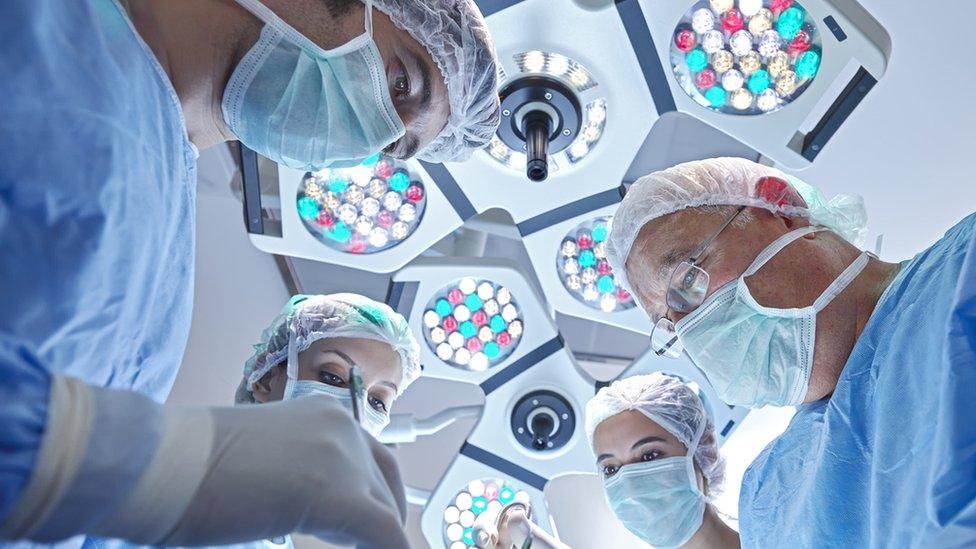NHS 'dangerously' short of 100,000 staff
- Published

The NHS in England has nearly 100,000 jobs unfilled, a situation described as "dangerously" understaffed.
The total represents one in 12 of all the posts in the health service and would be enough to staff 10 large hospitals.
It includes 35,000 nurse posts and nearly 10,000 doctor vacancies.
The figures have been revealed in a finance report, showing NHS services are heading for a £931m deficit this year, twice what was planned.
The overspend by hospitals, mental health trusts and ambulance services has been partly blamed on the need to cover the vacancies with overtime and temporary staff.
The accounts to the end of December also show higher than expected spending on paying the private sector to see NHS patients in an attempt to relieve the pressure on hard-pressed A&E units.
Despite the overspend, the forecast is still some way short of the record £2.45bn deficit accrued in 2015-16.
If you can't see the NHS Tracker, click or tap here, external.

Nigel Edwards of the Nuffield Trust think tank said the NHS was "dangerously" short of staff.
"In some ways, the lack of crucial workers in the NHS is an even bigger problem than the lack of funding.
"We can sign a cheque and bring back more money on-stream if the will is there, but there is no button to push which will suddenly bring us tens of thousands of qualified extra staff."
Royal College of Nursing general secretary Janet Davies added: "All the evidence shows that standards of patient care rise and fall as nurse numbers do.
"That was the lesson from Mid Staffordshire and we cannot afford to forget it."
Ian Dalton, head of NHS Improvement, the regulator that released the accounts, said the health service was working hard to tackle the problems.
He said staff deserved "heartfelt thanks" for their hard work.
A Department of Health and Social Care spokesman said: "We are supporting staff to improve work/life balance by working more flexibly and have announced the biggest ever expansion of training places for both doctors and nurses."
- Published4 January 2018

- Published26 December 2017

- Published21 December 2017
